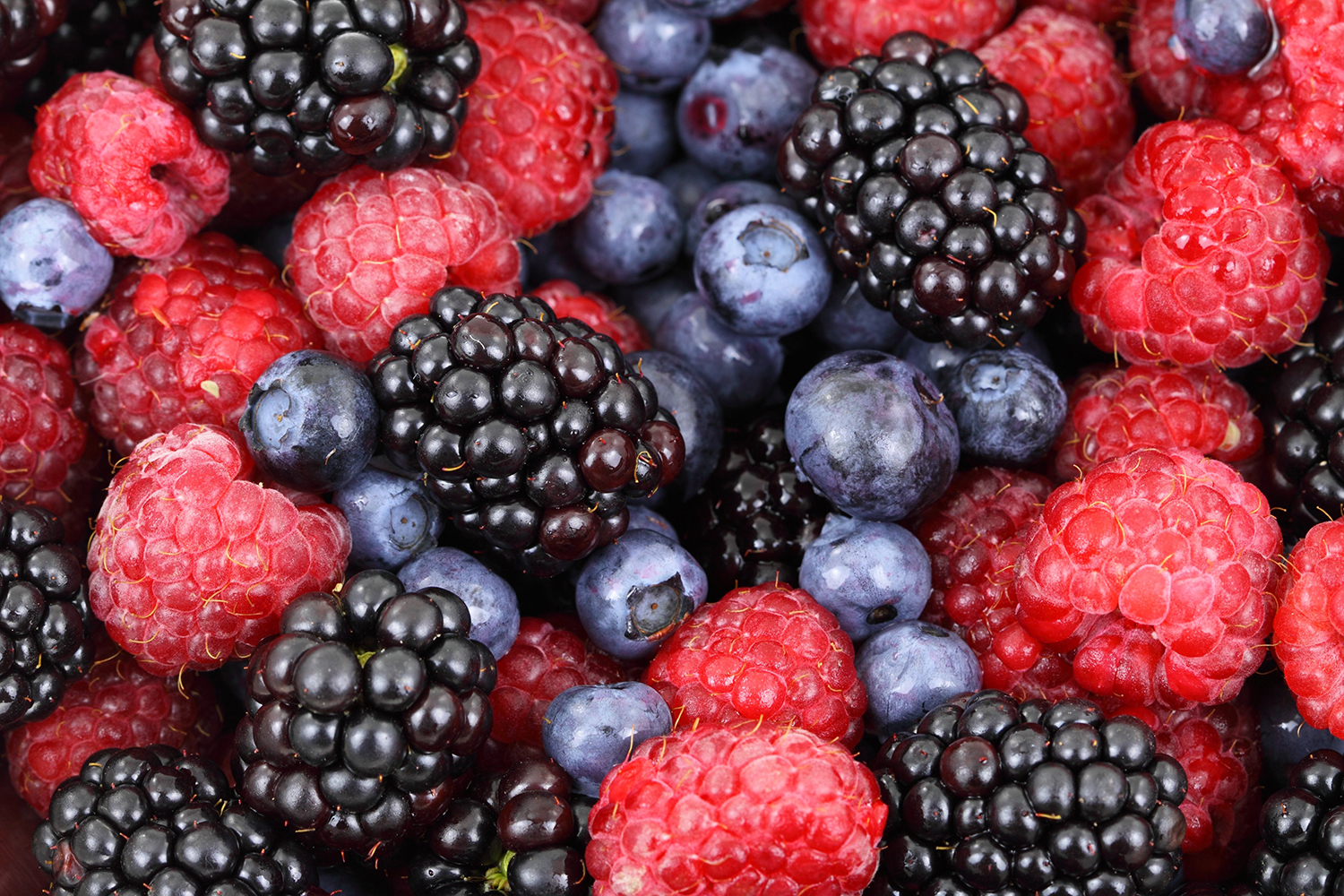Berries For Heart Health

Berries are a rich source of phytochemicals, including anthocyanins, polyphenols, and ellagic acid.
These phytochemicals protect cells from oxidative damage caused by free radicals, reducing the risk of heart disease and cancer.
Which berries are in season?
Summer is the optimal season for berries. Berries in season during the summer include:
- Blackberries
- Blueberries
- Boysenberries
- Currants
- Elderberries
- Marionberries
- Mulberries
- Raspberries
- Strawberries
- Tayberries
Cranberry season is in the fall.
Blueberry
Fresh blueberries contain…
- Vitamin C
- Fiber
- Anthocyanins
- Resveratrol
- Alpha-tocopherol (a form of Vitamin E)
Delicious fresh and cooked into a compote or dessert.
Raspberry
Available in red, gold, and black varieties, raspberries are high in vitamin C and provide 8 grams of fiber per cup.
Raspberries can be refrigerated for up to two to three days.
Best eaten fresh or in preserves.
Blackberry
Another excellent source of vitamin C, ellagic acid, and anthocyanin. Blackberries provide both soluble and insoluble fiber which play a role in healthy cholesterol levels.
Only 62 calories per cup of fresh blackberries.
Blackberries can be enjoyed fresh as a snack or added to salads, desserts, and sauces.
Strawberry
Not only are strawberries high in vitamin C, they also contain folate and potassium.
Only 49 calories per cup of fresh strawberries.
Frozen strawberries are readily available outside the growing season.
Boysenberry
Boysenberries are believed to be a hybrid of raspberries, blackberries, and loganberries.
Boysenberries are rich in vitamin K, fiber, and folate.
A little sweeter than raspberries, they are delicious both fresh and in desserts.
Goji Berry
Goji berries are native to China and usually available in the U.S. dried.
A good source of vitamins A and C, goji berries are traditionally boiled as a tea.
How to Select Berries
Select firm, plump berries that do not have bruising.
Choose dry berries that are not leaking juice.
Moisture increases mold risk.
How to Store Berries
You may freeze fresh berries immediately after purchase or store in the refrigerator for three to six days (unwashed).
Wash berries just before eating them.
Which is better? Fresh, frozen, or dried?
Nutrient profiles remain similar between fresh, frozen, and dried berries.
Some vitamin C may be lost during processing.
Avoid dried fruit that contains added sugars. Dried fruit is calorie-dense.
For example, ¼ cup of raisins contains 108 calories while one cup of fresh grapes contains 62 calories.
Berries for heart health. A great addition to a heart-healthy diet.
Berries are typically low in carbs and calories while being high in water.
Berries make the perfect snack or addition to cereal, salads, smoothies, and yogurt.
Want to increase your berry intake but know you’ll struggle sticking with the change? Use my guide How to Make Heart Healthy Changes into Lifelong Habits to ensure success.
All the best,
Lisa Nelson RD
Health Pro for HealthCentral



